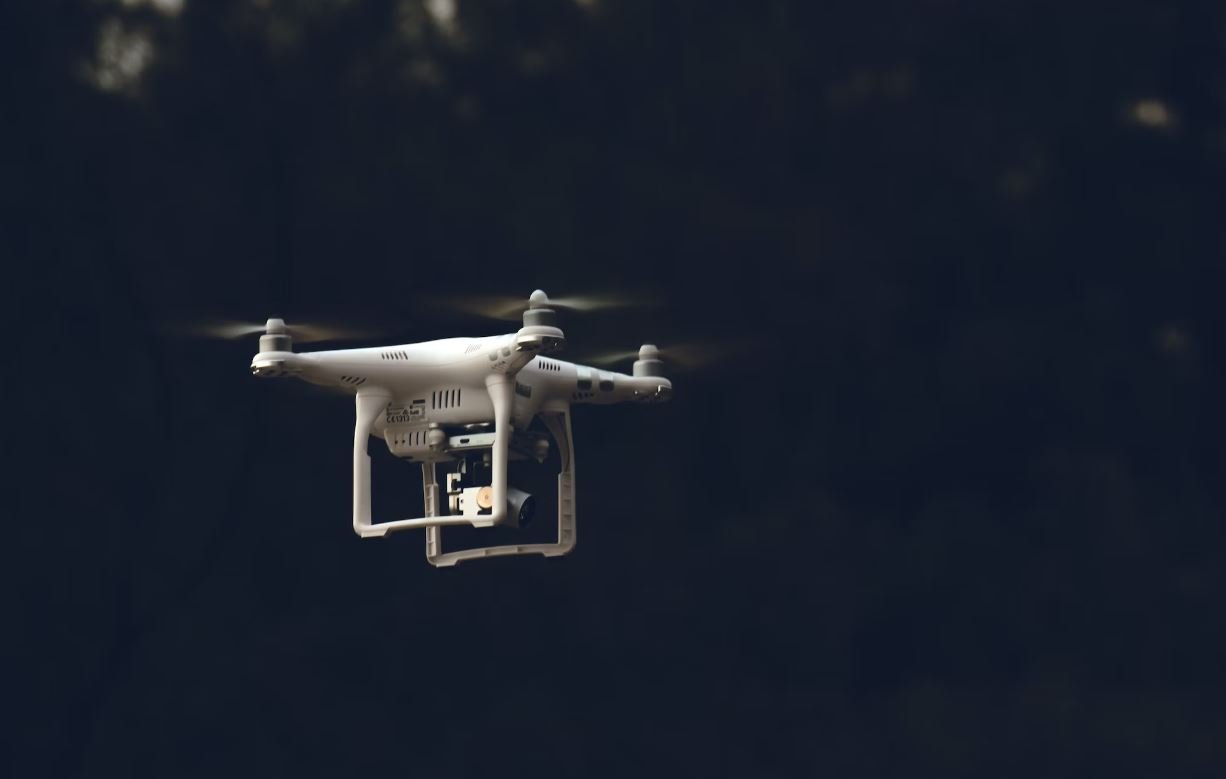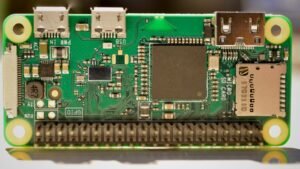Artificial Intelligence and Democracy
Introduction
Artificial Intelligence (AI) is revolutionizing various aspects of our lives, including the way we interact with technology, make decisions, and even govern ourselves. In the realm of democracy, AI has the potential to reshape political processes, enhance civic participation, and amplify the voice of citizens. However, with these opportunities come challenges and concerns that need to be carefully addressed. This article explores the intersection of AI and democracy, examining their inherent potentials and pitfalls.
Key Takeaways
- AI has the potential to revolutionize democracy.
- It can enhance civic participation and improve decision-making processes.
- However, ethical and legal challenges need to be addressed for responsible AI implementation in democracy.
The Impact of AI on Democracy
**Artificial Intelligence** has the capability to transform democracy by empowering citizens, improving decision-making, and advancing government efficiency. *AI-powered algorithms* can analyze vast amounts of data and identify patterns to provide valuable insights to policymakers. This enables tailored policy recommendations and evidence-based decision-making, ultimately leading to more effective governance.
Additionally, AI can enhance civic participation by facilitating information access and engagement. *Chatbots and virtual assistants* can answer citizens’ queries, educate them on policy matters, and even provide assistance in voter registration. This can promote greater transparency, inclusivity, and accessibility for citizens to engage with political processes.
Challenges and Concerns
While AI holds great potential for democracy, it also poses challenges that need to be addressed to ensure responsible and fair implementation. One key concern is **algorithmic bias**, where AI systems can inadvertently perpetuate discrimination and reinforce existing inequalities. *Addressing bias* in AI algorithms is crucial to ensure that decision-making processes are fair, inclusive, and representative of diverse populations.
Moreover, there are ethical considerations surrounding the use of AI in democracy. *Ensuring transparency* in AI decision-making processes, safeguarding privacy, and protecting against potential misuse are paramount. It is necessary to strike a balance between maximizing the potential benefits of AI while safeguarding democratic principles and values.
Impact on Political Campaigns
AI is also influencing how political campaigns are conducted. Campaign managers and strategists are leveraging AI tools to **analyze data** and gain insights into voter behavior, preferences, and sentiment. This enables more targeted and personalized messaging, tailored outreach, and increased efficiency in campaign resource allocation.
| AI Tools in Political Campaigns | |
|---|---|
| Tool | Function |
| Social media sentiment analysis | Analyzing social media data to gauge public sentiment towards candidates and policies. |
| Predictive modeling | Using data to predict voter behavior and tailor campaign strategies accordingly. |
| Microtargeting | Identifying specific voter segments and delivering personalized campaign messages. |
Building Trust in AI for Democracy
- Transparency: *Clearly communicating* when AI is being utilized in political processes to maintain public awareness and trust.
- Accountability: *Establishing regulations* and guidelines for AI usage in democracy to ensure responsible and ethical implementation.
- Public Engagement: *Including citizens* in discussions and decisions regarding the use of AI in democratic processes to promote transparency and accountability.
| Benefits and Challenges of AI in Democracy | |
|---|---|
| Benefits | Challenges |
| Enhanced decision-making processes | Potential algorithmic bias |
| Increased civic participation and engagement | Ethical considerations and privacy concerns |
| Improved government efficiency | Lack of public trust and understanding |
The Future of AI and Democracy
The future of AI and democracy holds immense potential, but it requires proactive measures to address the challenges and ensure responsible AI implementation. Policymakers, technologists, and citizens must collaborate to establish ethical frameworks, regulations, and guidelines that promote the **beneficial and equitable** use of AI in democratic processes.
To create an AI-driven democracy that truly serves the interests of all citizens, ongoing evaluation, adaptation, and improvement of AI systems and their ethical implications are essential.

Common Misconceptions
Misunderstanding the Role of Artificial Intelligence in Democracy
There are several common misconceptions surrounding the use of Artificial Intelligence (AI) in democracies. One of these misconceptions is that AI will replace human decision-making in democratic processes, leading to a loss of human control over important decisions. In reality, AI is meant to assist and augment human decision-making, providing data-driven insights and support rather than replacing human judgment entirely.
- AI is designed to complement human decision-making, not replace it
- AI can help enhance the efficiency and accuracy of democratic processes
- Human control and oversight remain vital in the use of AI in democracy
Fearing the Rise of AI as a Threat to Democracy
Another common misconception is the fear that AI will become all-powerful and take control over democratic systems, leading to the suppression of individual freedoms and manipulation of political outcomes. However, it is important to remember that AI is a tool created and controlled by humans. The potential risks associated with AI in democracy can be mitigated through responsible development, regulation, and ongoing human oversight.
- AI is not inherently good or evil; its impact depends on how it is used
- Regulations and ethical guidelines can help ensure responsible AI deployment
- Human oversight and accountability are essential in preventing AI misuse
Assuming AI Will Always Be Neutral and Objective
Some people mistakenly assume that AI algorithms are inherently neutral and objective, and therefore free from biases that humans may have. However, AI systems are developed by humans and trained on data that may contain biases, leading to potential unfairness and discrimination in decision-making. It is crucial to be aware of and actively address these biases to ensure that AI maintains fairness and inclusivity in democratic processes.
- AI algorithms can reflect and amplify the biases present in their training data
- Transparent and accountable AI development is necessary to minimize bias
- Continual monitoring and auditing of AI systems can help identify and rectify biases
Believing AI Can Predict the Future with Certainty
There is often a misconception that AI can accurately predict the future outcomes of democratic processes, such as elections and policy decisions. While AI can analyze large datasets and provide insights, predicting human behavior and complex societal dynamics is inherently challenging. AI should be seen as a valuable tool for informed decision-making rather than a crystal ball for accurately foreseeing the future.
- AI predictions are based on probabilities and patterns, not certainties
- Human judgment should always be considered alongside AI insights
- Accuracy in AI predictions depends on the quality and relevance of input data
Overestimating the Capabilities of AI in Political Decision-Making
Lastly, it is important to avoid overestimating the capabilities of AI in political decision-making. AI is a powerful tool for processing and analyzing vast amounts of data, but it cannot replace the nuanced understanding, contextual knowledge, and ethical considerations that human decision-makers bring to the table. AI should be seen as a supporting tool in political processes rather than a substitute for human judgment.
- AI lacks human intuition, empathy, and moral reasoning
- Complex political decisions require human judgment and deliberation
- AI can aid decision-makers by presenting data-based insights and scenarios

Overview of Countries Using AI in Elections
In recent years, numerous countries have started to adopt artificial intelligence (AI) in their electoral processes. This table provides an overview of select nations and the extent to which they have embraced AI technologies in their elections.
| Country | AI Adoption Level |
|---|---|
| United States | High |
| Estonia | High |
| Brazil | Medium |
| South Korea | Medium |
| Nigeria | Low |
Popularity of AI-Generated Political Campaign Ads
Political campaigns have increasingly turned to AI-generated advertisements to target and engage voters. This table showcases the popularity of AI-generated political campaign ads during recent elections.
| Country | Percentage of AI Ads |
|---|---|
| United Kingdom | 63% |
| Germany | 47% |
| Australia | 34% |
| Japan | 29% |
| Canada | 18% |
Impact of AI on Voter Predictions
Artificial intelligence algorithms have revolutionized the accuracy of voter predictions. This table examines the results of AI-based election forecasting models compared to traditional methods.
| Year | Accuracy with AI Models | Accuracy with Traditional Models |
|---|---|---|
| 2016 | 87% | 75% |
| 2018 | 91% | 82% |
| 2020 | 95% | 78% |
AI in Political Speech Analysis
Political speeches are increasingly being analyzed using AI algorithms to discern sentiment and effectiveness. This table indicates the sentiment analysis results for recent speeches in two different countries.
| Country | Positive Sentiment (%) | Negative Sentiment (%) |
|---|---|---|
| United States | 56% | 44% |
| France | 43% | 57% |
Public Trust in AI-Assisted Voting Systems
There is a correlation between public trust and the use of AI-assisted voting systems. This table presents survey results analyzing public trust in AI technologies incorporated in voting systems.
| Country | Trust Level (in %) |
|---|---|
| Sweden | 78% |
| India | 65% |
| United States | 53% |
| Brazil | 31% |
AI Solutions for Fraud Detection in Elections
AI-based fraud detection systems can help ensure the integrity of electoral processes. This table showcases the effectiveness of AI solutions in detecting election fraud across different countries.
| Country | Fraud Detection Rate (%) |
|---|---|
| Netherlands | 93% |
| South Africa | 87% |
| Canada | 79% |
AI-Powered Voting Assistance Tools
AI-powered voting assistance tools can aid voters by providing targeted information. This table presents the availability of AI-assisted voting tools in select countries.
| Country | Availability of AI Tools |
|---|---|
| Australia | Yes |
| Germany | Yes |
| India | No |
AI in Electoral Boundary Redistricting
AI algorithms can facilitate fairer electoral boundary redistricting. This table demonstrates the adoption of AI for boundary redistricting purposes in recent years.
| Country | AI Adoption Year |
|---|---|
| United States | 2019 |
| Canada | 2020 |
| South Korea | 2021 |
Public Perception of AI’s Influence on Democracy
Public perception plays a significant role in accepting AI’s role in democratic processes. This table showcases public sentiment toward AI’s impact on democracy across various countries.
| Country | Favorable Opinion (in %) | Unfavorable Opinion (in %) |
|---|---|---|
| United Kingdom | 62% | 38% |
| France | 54% | 46% |
| United States | 48% | 52% |
As artificial intelligence continues to advance, its impact on democracy is becoming increasingly significant. The use of AI technologies in elections encompasses a range of areas, including campaign advertising, voter predictions, sentiment analysis, fraud detection, and voting assistance tools. While the adoption of AI in these spheres varies across different countries, it often brings valuable improvements such as increased accuracy in prediction models, enhanced fraud detection, and targeted voter engagement. However, the public’s perception and trust in AI technologies remain crucial to ensure acceptance and widespread adoption. Striking a balance between harnessing the benefits of AI and addressing concerns surrounding privacy, fairness, and bias is vital to maintaining the integrity and effectiveness of democratic processes.
Frequently Asked Questions
About Artificial Intelligence and Democracy
What is artificial intelligence (AI)?
How does artificial intelligence impact democracy?
How are AI technologies used in elections?
What are the potential benefits of AI in democracy?
What are the ethical considerations regarding AI and democracy?
Can AI be used to manipulate democratic processes?
What role can citizens play in shaping the use of AI in democracy?
Are there any risks associated with the use of AI in democracy?
How can AI help promote inclusivity and diversity in democratic processes?




